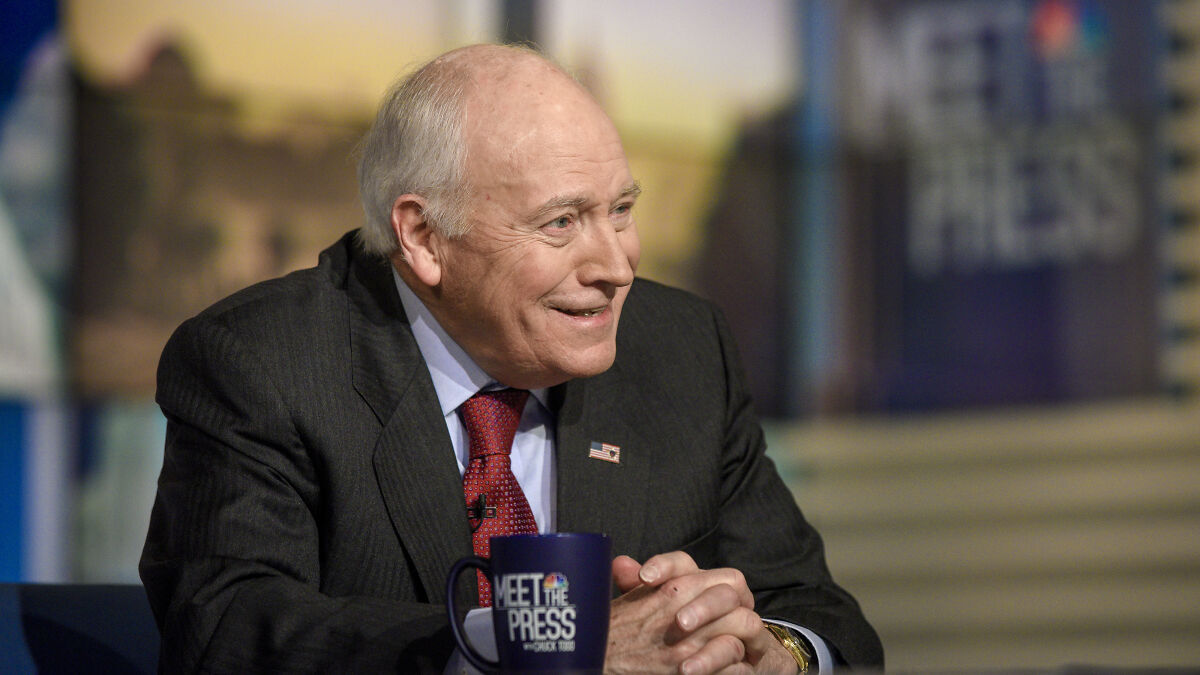
Former U.S. Vice President Dick Cheney, Chief Architect Of The ‘War On Terror,’ Passes Away At 84
Former U.S. Vice President Dick Cheney, who served in George W. Bush’s administration, has died at the age of 84.
Cheney passed away on Monday, November 3, due to complications of pneumonia and cardiac and vascular disease.
His family announced his death in a statement released Tuesday and said he was surrounded by loved ones when he died.
- Dick Cheney, former U.S. Vice President and key architect of the ‘War on Terror,’ died at 84 from pneumonia and heart-related issues.
- Cheney shaped U.S. national security post-9/11, including the Afghanistan and Iraq invasions and expanded surveillance measures.
- He served as Secretary of Defense under George H.W. Bush, leading major campaigns like Operation Desert Storm and Just Cause.
Former U.S. Vice President Dick Cheney died Monday at the age of 84
Image credits: William B. Plowman/NBC/NBC Newswire/NBCUniversal via Getty Images
Cheney was VP under Republican President Bush between 2001 and 2009, and he was widely seen as a key architect of U.S. national security and foreign policy following the September 11, 2001, terrorist attacks.
He played a central role in shaping the “War on Terror,” including the invasions of Afghanistan and Iraq, and the creation of the post-9/11 national security framework.
That framework included expanding surveillance powers and establishing detention and interrogation policies.
Cheney also served under George Bush Sr. between 1989 and 1993 as Secretary of Defense, as well as White House chief of staff in the 1970s for Gerald Ford.
“Richard B. Cheney, the 46th Vice President of the United States, died last night, November 3, 2025. He was 84 years old,” a family statement announcing his death read.
Image credits: Bettmann Archive/Getty Images
“His beloved wife of 61 years, Lynne, his daughters, Liz and Mary, and other family members were with him as he passed.
“The former vice president died due to complications of pneumonia and cardiac and vascular disease.”
The statement went on to describe how Cheney, for decades, had served the nation, “including as White House Chief of Staff, Wyoming’s Congressman, Secretary of Defense, and Vice President of the United States.”
“Dick Cheney was a great and good man who taught his children and grandchildren to love our country, and to live lives of courage, honor, love, kindness, and fly fishing,” it added.
“We are grateful beyond measure for all Dick Cheney did for our country. And we are blessed beyond measure to have loved and been loved by this noble giant of a man.”
Image credits: Mark Wilson/Getty Images
Cheney, a giant in Republican politics, stirred controversy last year when he announced his backing for Democratic presidential candidate Kamala Harris.
His reasoning was that there had “never been an individual who is a greater threat to our republic than Donald Trump.”
“He tried to steal the last election using lies and violence to keep himself in power after the voters had rejected him,” Cheney said at the time.
In response to his comments, Donald Trump branded him as an “irrelevant RINO”, which stands for Republican in name only.
Cheney was born on January 30, 1941, in Lincoln, Nebraska, and spent his formative years in Casper, Wyoming.
Cheney was seen as a key architect of the ‘War on Terror’
Image credits: jean-Louis Atlan/Sygma via Getty Images
He completed both a bachelor’s and a master’s degree in political science from the University of Wyoming before launching his career in public service in 1969, when he joined the Nixon administration and held various roles within the Cost of Living Council, the Office of Economic Opportunity, and the White House.
After serving as Chief of Staff to the 38th U.S. President, Gerald Ford, Cheney returned to Wyoming and was elected to serve as a congressman.
Cheney won re-election to Congress five times and was chosen by his fellow Republicans to lead the party’s Policy Committee from 1981 to 1987.
In 1987, he became Chairman of the House Republican Conference, and the following year, he was selected to serve as House Minority Whip.
Image credits: Win McNamee/Getty Images
He served as Secretary of Defense from March 1989 to January 1993 under George Bush Sr., directing two of the largest military campaigns in recent history: Operation Just Cause in Panama and Operation Desert Storm in the Middle East.
Cheney’s career then shifted to the private sector, and he was Chairman and CEO of Halliburton, a major oilfield services company, before his return to politics as Vice President under George W. Bush.
Cheney’s advocacy for the 2003 invasion of Iraq, based on claims that Saddam Hussein possessed weapons of mass destruction, is a controversial aspect of his career, as those weapons were never found.
It took the U.S. nearly nine years to fully withdraw its military forces from Iraq, with combat operations formally ending in 2011.
The war is estimated to have cost over $2 trillion and resulted in hundreds of thousands of deaths.


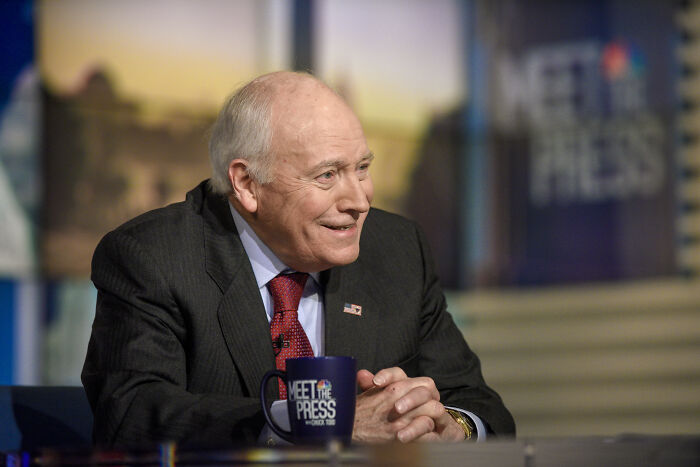
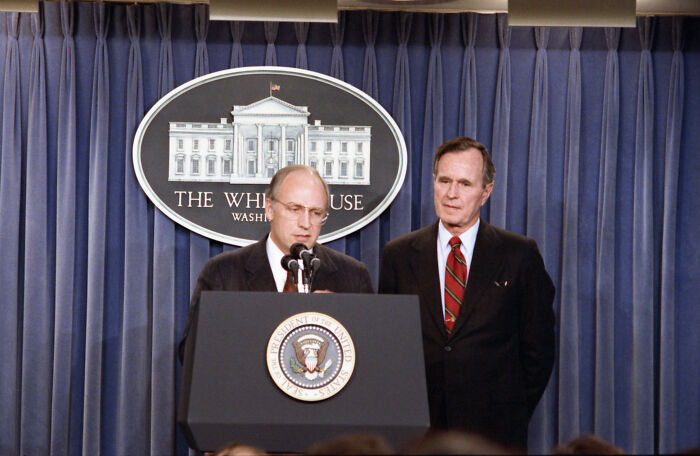
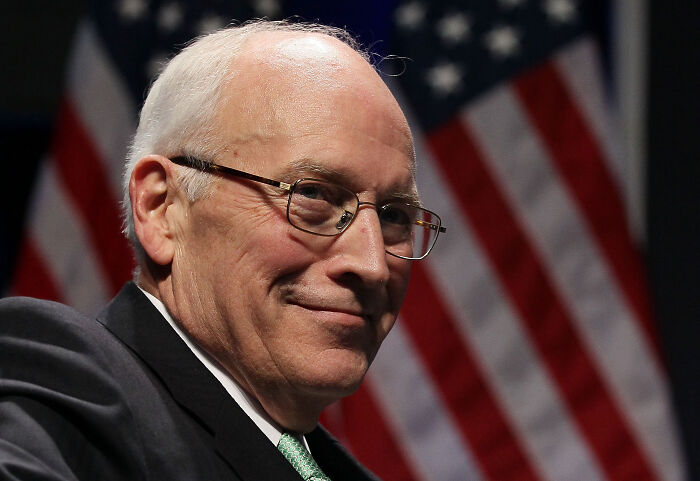
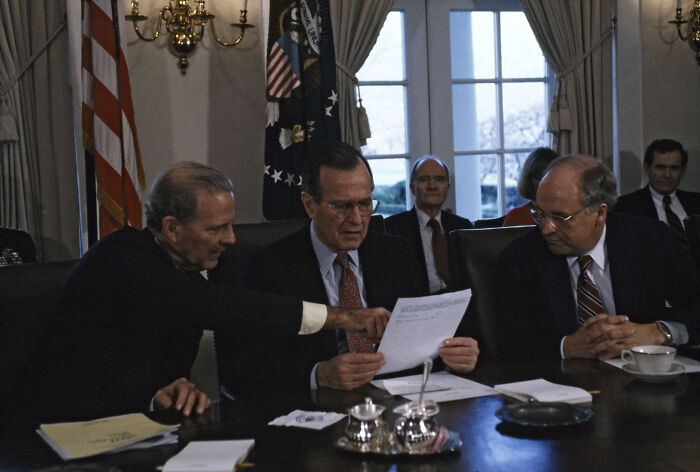
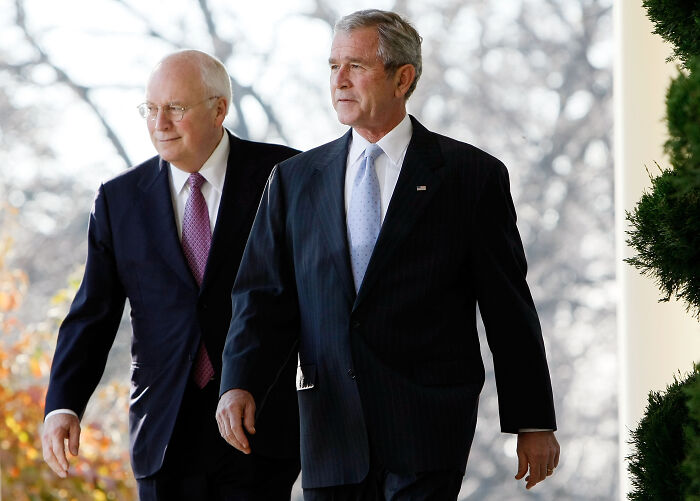



17
2